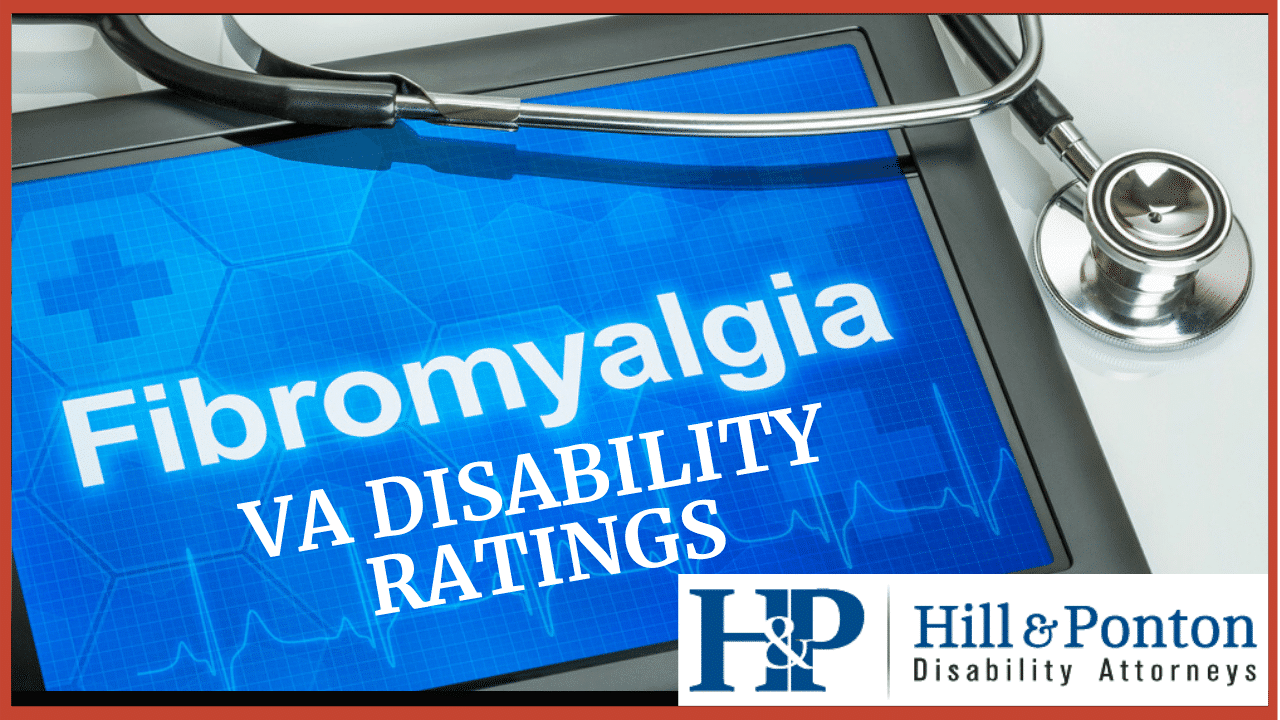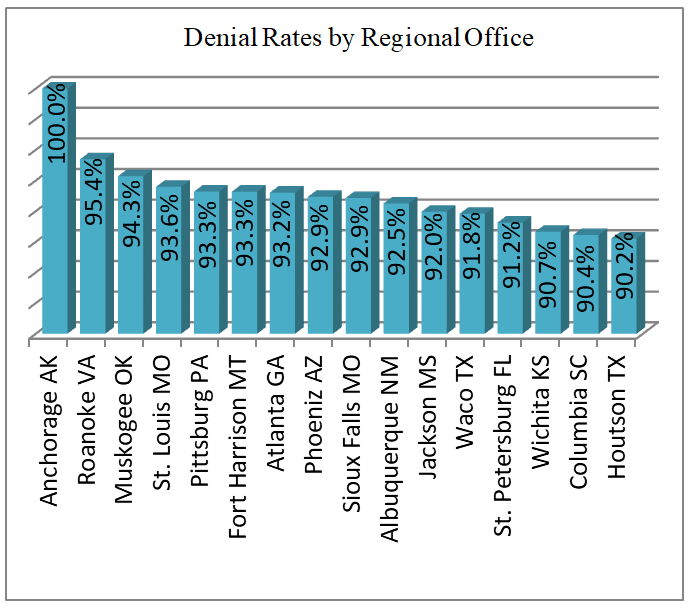As a veteran of Operation Enduring Freedom (OEF), Operation Iraqi Freedom (OIF), or Operation New Dawn (OND), you’ve faced challenges unique to your service.
These operations have left lasting marks on many who served, including health issues that may emerge long after coming home.
This guide is dedicated to you and your dependents, shedding light on the range of disabilities commonly associated with your service, and the comprehensive VA benefits designed to support you.
What Disabilities Impact OEF, OIF and OND Veterans and What VA Benefits are Available?
Veterans of Operation Enduring Freedom (OEF), Operation Iraqi Freedom (OIF), and Operation New Dawn (OND) have been exposed to unique and challenging environments that have left many with lasting health impacts.
The Department of Veterans Affairs (VA) recognizes a range of disabilities commonly associated with service in these operations, providing targeted support and compensation for affected veterans.
Understanding these common conditions is the first step toward accessing the benefits designed to assist in managing and treating them.
Common Disabilities Impacting OEF, OIF, and OND Veterans:
- Post-Traumatic Stress Disorder (PTSD): A mental health condition triggered by experiencing or witnessing traumatic events.
- Traumatic Brain Injury (TBI): Injuries to the brain caused by exposure to blasts, which is prevalent among veterans of these conflicts.
- Musculoskeletal Injuries: Conditions affecting the bones, joints, and muscles, often resulting from the physical demands of service.
- Hearing Loss and Tinnitus: Auditory conditions frequently reported due to exposure to loud noises and blasts.
- Respiratory Conditions: Diseases and conditions affecting the lungs and breathing, including those related to exposure to dust, burn pits, and other environmental hazards.
- Skin Disorders: Conditions caused by exposure to harsh environmental factors, including sunburn, eczema, and other skin conditions.
- Chemical Exposure Illnesses: Health issues related to exposure to toxic chemicals and substances, including conditions linked to burn pits and other hazardous materials.
- Mental Health Disorders: A range of conditions, including depression and anxiety, stemming from the stresses and experiences of combat.
- Infectious Diseases: Conditions resulting from exposure to infectious diseases during deployment in specific regions.
Recognizing these conditions is crucial for OEF, OIF, and OND veterans seeking VA disability benefits and support.
The VA offers specialized programs and benefits to address these disabilities, reflecting the commitment to care for our nation’s veterans.
Did the VA Deny Your Disability Claim?
Let our team review your case today!
Get a Free Case EvaluationToxic Exposure and Health Risks for OEF Veterans
Veterans of Operation Enduring Freedom (OEF) encountered various harmful substances during their service, leading to potential short-term or permanent health effects.
Understanding these exposures is important for recognizing symptoms and pursuing VA disability benefits.
Common Exposures and Associated Health Risks
- Burn Pit Smoke: Exposure to smoke from burn pits can lead to respiratory conditions, ongoing irritation, and other serious health concerns.
- Toxic-Embedded Fabrics and Explosive Matter: Handling or being near these materials can cause a range of health issues, including skin irritation and respiratory problems.
- Mefloquine Side Effects: Used as a malaria protectant, mefloquine can cause side effects such as nausea and dizziness.
- Particulate Matter (PM10 and PM2.5): Small enough to bypass the nose and throat, these particles can directly affect the lungs, exacerbating conditions like asthma and leading to serious respiratory diseases.
- Depleted Uranium: Exposure, through ingestion or inhalation, can lead to lung and kidney cancers due to its residual radioactivity.
- Infectious Diseases: Conditions such as Malaria, Q fever (Coxiella burnetii), West Nile Virus, Brucellosis, and Mycobacterium tuberculosis were common, with symptoms ranging from fevers and headaches to severe respiratory distress.
Veterans who have experienced any of the above exposures should monitor for symptoms and consult healthcare providers for assessments related to these specific risks.
Recognizing these symptoms early and understanding their potential link to service experiences is vital for accessing appropriate care and support.
Remember: Exposure to these substances and conditions can justify VA disability benefits. If you’re experiencing health issues potentially linked to your service, exploring the epidemiology of your symptoms is an important step in making a connection to your time in OEF.
OEF Veterans and Traumatic Brain Injuries (TBI)
Around 10 – 20% of Army and Marine Corps service members involved in Operation Iraqi Freedom and Operation Enduring Freedom sustained a mild traumatic brain injury.
These injuries can ultimately result in long-term health problems, such as confusion, memory loss, dizziness, and even loss of consciousness.
In addition, in a study of more than 300,000 soldiers and Marines, the frequency of those reporting mental health problems was several percentage points higher than those returning from other deployments.
- For those returning from Iraq, the frequency was about 19%
- For those returning from Afghanistan, the frequency was about 11%
- The baseline for other deployments was around 8.5%
These kinds of outreach studies provide real insight into just how many veterans are affected by they come back to the US.
The symptoms don’t just harm them either, but can easily stretch to dependents, extended family members, and even their larger community.
Common disabilities from TBI can include:
- Post Traumatic Stress Disorder (PTSD): This condition is more than just general stress after an event. It can be debilitating for veterans to live with the trauma day after day.
- Depression: From mild to severe, depression causes service members to lose joy in things they once loved to do.
- Anxiety: Anxiety can manifest as anything from fear to a general sense of unease.
- Physical Difficulties: The brain is what controls the rest of the body. Any damage can result in a multitude of physical disabilities.
TBIs can occur for any number of reasons, but one of the most common is IED explosions.
Considering their frequency and the proximity of veterans to them, it’s no wonder that this is such a common reason behind disability claims.
TBI may also contribute to the higher frequency of suicides for military personnel who served in the Afghanistan war.
If you think that you might be suffering from a TBI, it might be time to talk to a doctor to be evaluated.
Have you been diagnosed with a TBI and want to learn more about VA ratings and how to maximize your benefits? Check out our comprehensive TBI guide here.
VA Disability Benefits Available to OEF, OIF, and OND Veterans
Veterans who served in Operation Enduring Freedom (OEF), Operation Iraqi Freedom (OIF), and Operation New Dawn (OND) have made significant sacrifices for our country.
Recognizing these sacrifices, the Department of Veterans Affairs (VA) offers specialized disability benefits tailored to address the unique needs and challenges faced by these veterans.
These benefits are designed to provide comprehensive support, acknowledging the specific health and environmental risks encountered during these operations.
Here’s some of the more common benefits available:
- Priority Health Care Enrollment: Expedited and priority enrollment in VA health care programs, with cost-free care for conditions potentially related to combat service.
- Service-Connected Disability Compensation: Monthly compensation for injuries or illnesses that occurred or were aggravated during active duty, including combat-specific conditions.
- Post-Traumatic Stress Disorder (PTSD) Support: Access to counseling, therapy, and treatment programs for PTSD and other mental health conditions.
- Traumatic Brain Injury (TBI) Treatment: Specialized care and rehabilitation services for TBI, a common injury among veterans of these conflicts.
- Chemical Exposure Treatment: Health services and monitoring for conditions related to exposure to hazardous materials and environmental hazards.
- Specialized Rehabilitation Programs: Tailored programs for physical and mental recovery, including prosthetics, speech therapy, and vocational rehabilitation.
- Education Benefits: Enhanced access to education and training opportunities under the Post-9/11 GI Bill and other education programs.
- Employment Services: Assistance with job training, job-seeking skills, and access to employment opportunities.
- Home Loan Guarantees: Assistance in obtaining home loans, with special provisions for disabled veterans.
- Insurance: Access to life insurance and policies designed specifically for veterans with service-connected disabilities.
These benefits represent just a fraction of the resources available to OEF, OIF, and OND veterans.
The VA is committed to ensuring that those who served in these operations receive the care and support they need.
To view a comprehensive list of the benefits available to you as a veteran with a service-connected disability, we’ve got you covered. Click here to check out our benefits guide!



